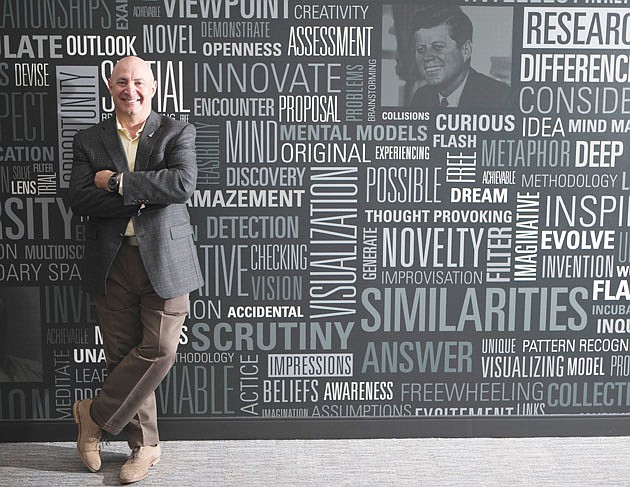- November 24, 2024
-
-
Loading

Loading

Chuck Papageorgiou says he doesn't overemphasize his accomplishments, but he will tell you about his failures.
“Experience is an expensive feature,” Papageorgiou says. “I spend a lot of time trying to figure out how to help others from what I've learned.” The Tampa-based operations and technology corporate turnaround consultant and C-level contract executive is well-known in the city for advising entrepreneurs.
One of the biggest mistakes Papageorgiou made was not securing a verbal promise for venture funding in writing. It cost him an entire company that he'd built from scratch.
In late 1996, Papageorgiou had a client that asked him to research a market need, and then build a company around it. The idea was simple but the solution was complex, working to solve the issue of trucking logistic inefficiencies. For example, a company may need a truck to go from point A to point B, but when the truck needs to return to point A, it oftentimes doesn't have a load for the way back. Not only was it a business problem that impacted multiple trucking companies, but it was also regulated by multiple government agencies.
Papageorgiou secured $1 million in funding for researching the problem and creating a business plan to execute as CEO. He determined it would be a $20 million project to get the company, Transportal Network, launched. Some real estate investors who owned a number of warehouses decided that they wanted to invest in the company, and provided the first $10 million to build the business, telling Papageorgiou to raise the second $10 million when he ran out of runway.
“Over the course of two years, we made every milestone” from the business plan, Papageorgiou says. Twenty-seven out of the 32 largest trucking companies had signed up for the network, and the company received approval from the Department of Justice and the Department of Transportation. They had partnered with Sabre, the technology company that optimizes airline travel, for “the most sophisticated modeling optimization.” The company had also hired an executive team and was garnering press about its upcoming solution.
On the funding side, Papageorgiou knew it was time to secure the next $10 million, so he went on a roadshow with a pitch deck. He came back to the real estate investors with two term sheets for $5 million each from different venture capitalists. But the investors did not love the terms, and told him they would prefer to continue to fund. “We've got plenty of money,” they said, according to Papageorgiou, and turned down the outside funding.
So Papageorgiou continued to hammer away. With three months from releasing a first commercial version to start generating revenue, he went back to the investors to let them know the company needed the cash to get through the next period.
That's when things turned for the worst. It was 2000, and the tech bubble had burst. The investors were spooked and decided to pull the funding. Papageorgiou was forced to shut the company down and lay off all 40 employees just two weeks before the go-live date.
“I went into hiding for two months; I couldn't face anybody,” he says. “I thought I did everything right. But I should have forced the issue of putting it in writing that they were going to give me the next $10 million.
“I felt horrible because I had hired people, had people move families to Atlanta,” Papageorgiou says. Perhaps the worst part was that the investors only wanted to pay the employees the bare minimum that they were legally obligated.
In the end, Papageorgiou says he persuaded them to give him a 50% severance package, so they could give everyone else four weeks of severance.
That generous act was what saved him, he says. He started to get calls when people found out what he had done, people calling to thank him and let him know they knew it was just a bad deal, but he was still a good guy. “The support of people that I thought were going to hate my guts” helped pull him out of his depression.
After the two-month depression, Papageorgiou went back to the books to figure out what he could've done differently. Now he shares those lessons with others.
Since the mistake, Papageorgiou has worked in many other capacities with some of the individuals he employed at Transportal Network. He also ended up on the Rolodex of several of the venture capitalist firms whom he had presented to, and has received calls for consulting work as those people have ended up in different careers.
Today, Papageorgiou is trying his hand at potentially securing outside funding for the first time ever since his mistake. His company that provides background checks, International Screening Solutions Inc., grew 303% to several millions in revenue over the past three years, landing it a spot on the Inc. 5000 last year. He thinks it's time to get some outside investment, but is hesitant to do so. Whatever he decides to do with the latest venture, he knows he won't fall into the same trap as last time.